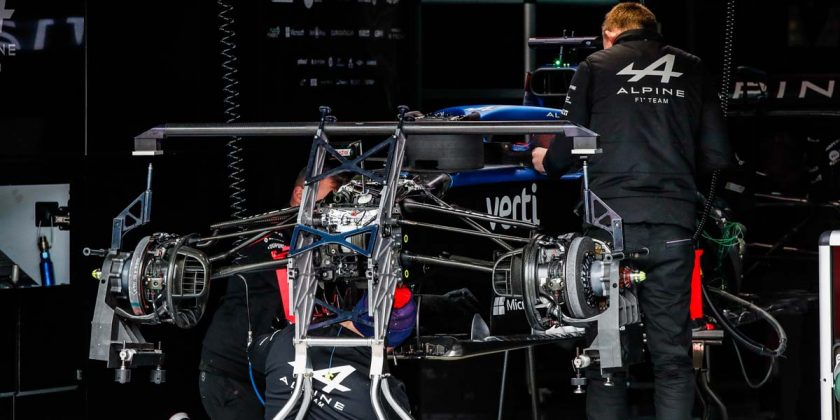The University of Leicester and Formula 1 engineers have worked in tandem to create a pioneering system for medical staff to be able to communicate while wearing full personal protective equipment (PPE).
Formula 1’s involvement in the process came as a part of ‘Project Pitlane’, to which seven UK-based teams signed up in 2020 on a non-profit basis to help in the fight against Covid-19.
The new communications device, called the MedicCom, allows doctors and nurses to speak clearly to each other while wearing full protective gear.
This system, which connects via Bluetooth and can be used on smart speakers within hospitals, has been developed and trialled successfully by academics in Leicester alongside Formula 1 engineers – with their collaboration speeding up the manufacturing process of what could prove to be a life-saving invention.
As there has been potential for NHS staff to tire themselves out and have their words get lost in translation while wearing full PPE, the implementation of the MedicCom should be of benefit to doctors and patients alike, with Formula 1 teams playing their part in development.
Tim Coats, a Professor of Emergency Medicine and Associate Dean for Clinical Data Science at the University of Leicester, and consultant in emergency medicine at Leicester’s Hospitals, explained the full benefits of the new system.
MedicCom creates an intercom to the team inside an isolation room (requested by @grade1view) by bluetooth to a mobile phone + wifi to a smart speaker outside the isolation room. Earpiece and throat microphone allow easy conversation. @amazon @alexa99 #echodot @alexadevs pic.twitter.com/8AGIwUWdjY
— Tim Coats (@TJCoats) June 11, 2021
Check all the latest 2021 teamwear via the official Formula 1 store
Professor Coats said in a press release: “Even if someone is standing next to you, if you’re head-to-toe in PPE, you have to be shouting to be able to hear one another.
“Not only is that exhausting, but we know that this can cause errors of miscommunication which could potentially harm patients.
“Good communication has a profoundly positive effect on patient care, and that is why we started work on a solution.
“Working with the F1 engineers has been brilliant. We’ve been able to use their expertise in advanced electrical engineering and their facilities for rapid prototyping to produce in six months a device which would normally take years.”
Bob Bell, Alpine’s strategic advisor was a part of the process of the development of MedicCom, adding: “Project Pitlane has continued the work it started during the ventilator challenge, this time assisting the University of Leicester to develop a novel medical communications device to assist NHS clinicians wearing PPE.
“It has been a pleasure to work with both the University and Innovate UK, and we hope that it will lead to further fruitful collaborations.”
Source: Read Full Article
